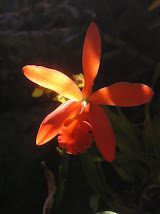 Fiji has seen four coups in the past two decades. At the heart of each one lies the tensions between the ethnic Fijian majority and Indian Fijians. The latter make up more than 40% of the population.
Fiji has seen four coups in the past two decades. At the heart of each one lies the tensions between the ethnic Fijian majority and Indian Fijians. The latter make up more than 40% of the population. 5 DECEMBER 2006
Fiji's military chief, Frank Bainimarama, wrests control from the elected government after threatening for months to force Prime Minister Laisenia Qarase from office. He says the takeover is temporary, and that a caretaker government will be installed before fresh elections are held. Commodore Bainimarama said he was compelled to act over government plans for legislation that would allow the plotters of a coup in 2000 to be pardoned, as well as allocate the ownership of coastal land to ethnic Fijians. His actions have drawn condemnation both at home and abroad, and led to Fiji's suspension from the Commonwealth.
19 MAY 2000
An armed group of indigenous nationalists stormed Fiji's parliament and took the first ethnic Indian Prime Minister, Mahendra Chaudry, and several MPs hostage. Mr Chaudry was held for 56 days. Coup leader George Speight, a local businessman, said he was acting to restore the rights of indigenous Fijians, whom he claimed were being oppressed by the Indian minority.
Ten days later, Cmdr Bainimarama moved against Speight and declared martial law, later handing power to an interim administration headed by Laisenia Qarase, who went on to win two elections. Speight and his gunmen were initially granted amnesties by Cmdr Bainimarama when the coup was put down, but were later arrested. Speight was sentenced to life in prison for treason in 2002. In November 2000, soldiers who had supported the coup and were angry at Cmdr Bainimarama's actions staged a mutiny at the military headquarters in Suva, Queen Elizabeth Barracks, forcing him to flee for his life.
MAY AND SEPTEMBER 1987
In similar circumstances to the coup in 2000, Lieutenant Colonel Sitiveni Rabuka led armed soldiers into parliament on 14 May 1987. He seized power from then Prime Minister Timoci Bavadra, head of a recently-elected multi-racial coalition government, with the aim of making indigenous Fijians politically dominant. Unhappy with the way political negotiations were progressing after his first coup, Col Rabuka staged a second coup in September. He declared Fiji a republic with himself as its leader, and withdrew from the Commonwealth. Thousands of ethnic Indians fled the country as a new constitution was brought in guaranteeing indigenous Fijians more seats in parliament and the post of prime minister. Col Rabuka was elected prime minister from 1992 until 1999, when Mahendra Chaudry came to power. Fiji was readmitted to the Commonwealth in 1997 after it abolished the constitution's racially-based provisions. Col Rabuka is currently on trial, accused of inciting the mutiny against Cmdr Bainimarama at Queen Elizabeth Barracks.
Fiji's military chief, Frank Bainimarama, wrests control from the elected government after threatening for months to force Prime Minister Laisenia Qarase from office. He says the takeover is temporary, and that a caretaker government will be installed before fresh elections are held. Commodore Bainimarama said he was compelled to act over government plans for legislation that would allow the plotters of a coup in 2000 to be pardoned, as well as allocate the ownership of coastal land to ethnic Fijians. His actions have drawn condemnation both at home and abroad, and led to Fiji's suspension from the Commonwealth.
19 MAY 2000
An armed group of indigenous nationalists stormed Fiji's parliament and took the first ethnic Indian Prime Minister, Mahendra Chaudry, and several MPs hostage. Mr Chaudry was held for 56 days. Coup leader George Speight, a local businessman, said he was acting to restore the rights of indigenous Fijians, whom he claimed were being oppressed by the Indian minority.
Ten days later, Cmdr Bainimarama moved against Speight and declared martial law, later handing power to an interim administration headed by Laisenia Qarase, who went on to win two elections. Speight and his gunmen were initially granted amnesties by Cmdr Bainimarama when the coup was put down, but were later arrested. Speight was sentenced to life in prison for treason in 2002. In November 2000, soldiers who had supported the coup and were angry at Cmdr Bainimarama's actions staged a mutiny at the military headquarters in Suva, Queen Elizabeth Barracks, forcing him to flee for his life.
MAY AND SEPTEMBER 1987
In similar circumstances to the coup in 2000, Lieutenant Colonel Sitiveni Rabuka led armed soldiers into parliament on 14 May 1987. He seized power from then Prime Minister Timoci Bavadra, head of a recently-elected multi-racial coalition government, with the aim of making indigenous Fijians politically dominant. Unhappy with the way political negotiations were progressing after his first coup, Col Rabuka staged a second coup in September. He declared Fiji a republic with himself as its leader, and withdrew from the Commonwealth. Thousands of ethnic Indians fled the country as a new constitution was brought in guaranteeing indigenous Fijians more seats in parliament and the post of prime minister. Col Rabuka was elected prime minister from 1992 until 1999, when Mahendra Chaudry came to power. Fiji was readmitted to the Commonwealth in 1997 after it abolished the constitution's racially-based provisions. Col Rabuka is currently on trial, accused of inciting the mutiny against Cmdr Bainimarama at Queen Elizabeth Barracks.






























No comments:
Post a Comment